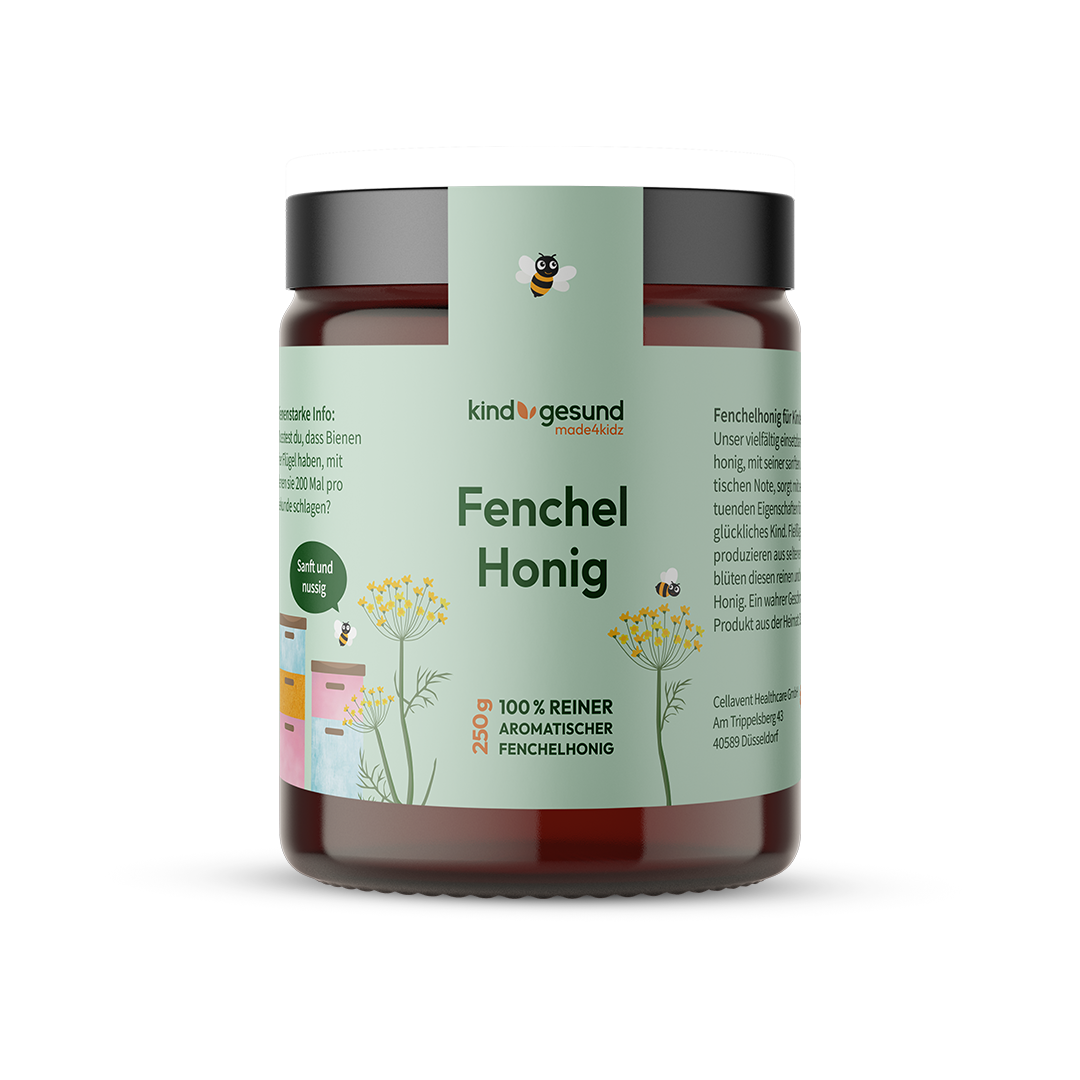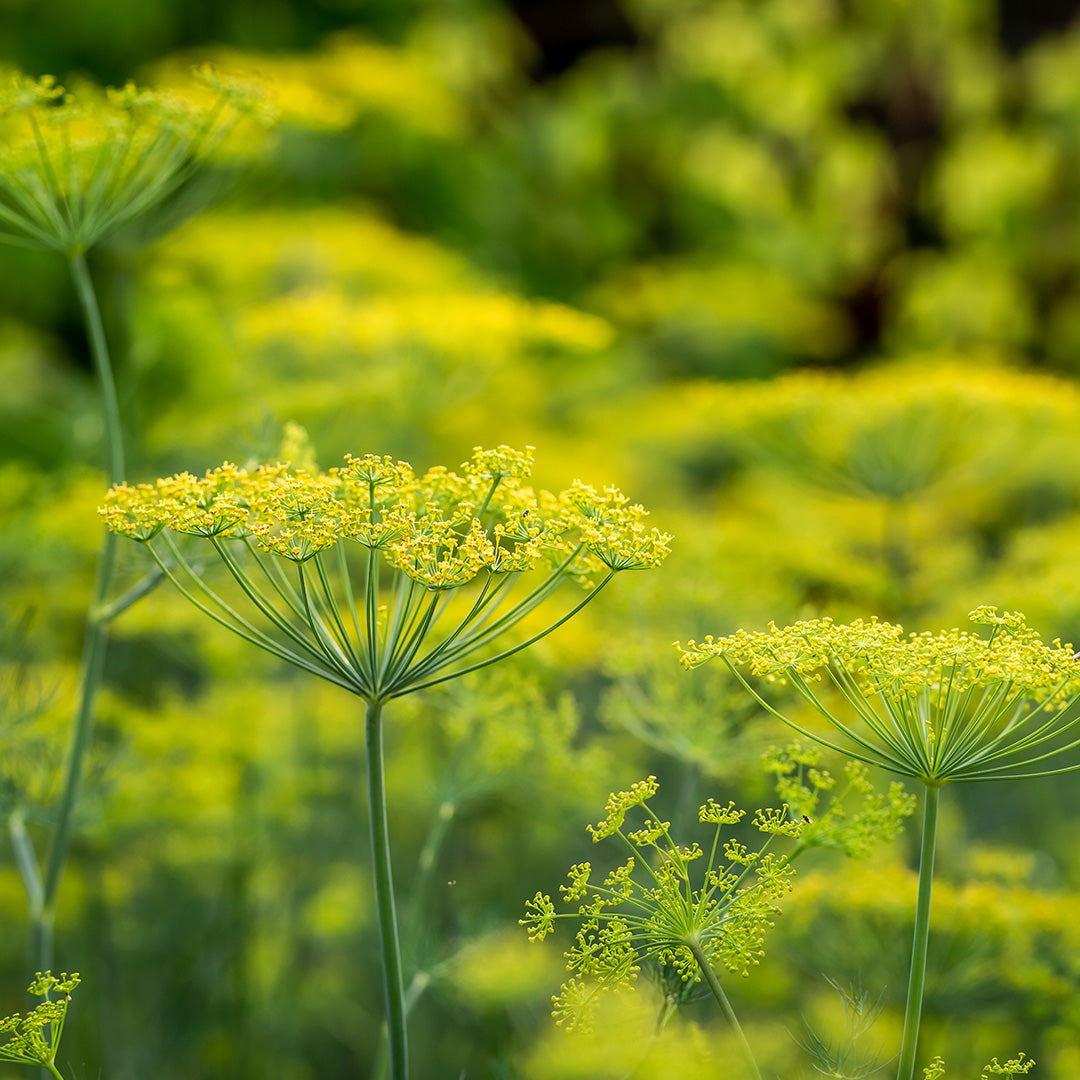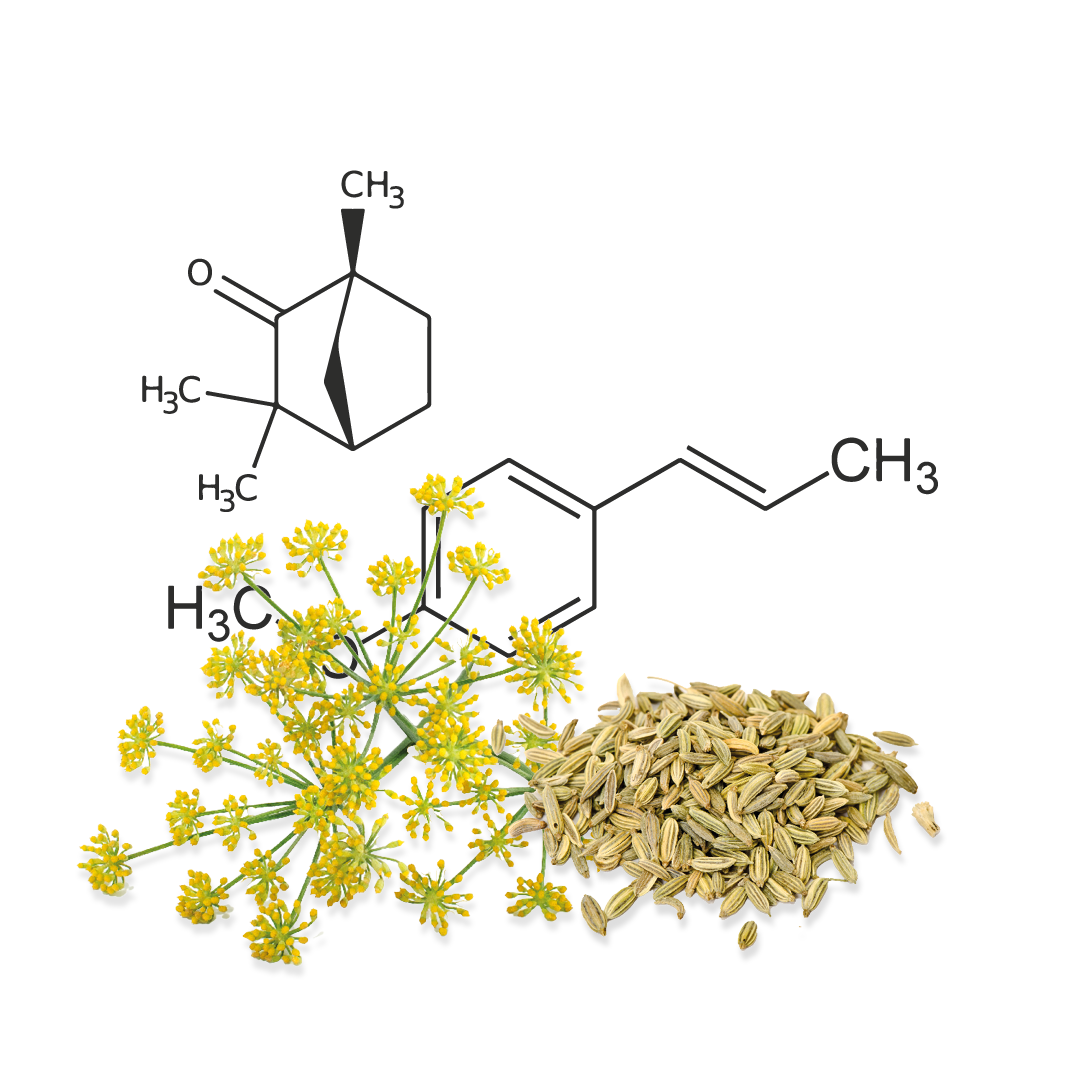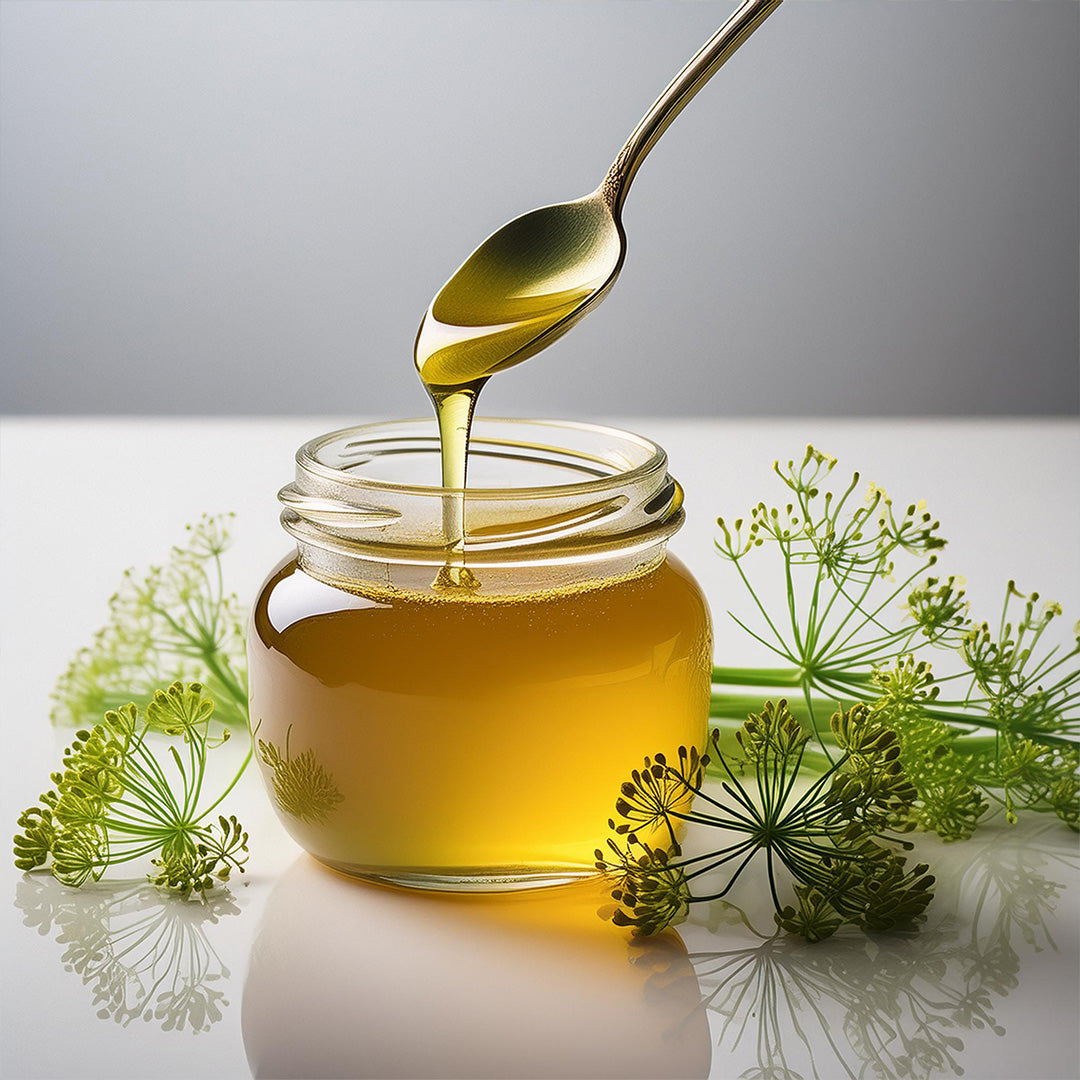
Outstanding quality of our child-healthy fennel honey:
- 100 % pure fennel honey from Germany
- Particularly child-friendly taste with mild, sweet herbal notes
- In comparison to conventional honeys, our fennel honey is bottled in Germany under strict controls in high-quality brown glass jars that protect it from heat and light.
- Due to its unique health benefits, fennel honey is supportive all year round.
Why fennel honey is so valuable:
Fennel honey for children is valued worldwide for its health benefits, unique flavor nuances and intense aroma.
The honey is produced by bees in Germany that feed mainly on the nectar of fennel flowers , which gives it its characteristic golden color and its delicately sweet and slightly spicy aroma.
This honey reflects the rich flora of untouched nature and brings a piece of home to the table. The traditional production and the high quality make German fennel honey a very special treat. Due to its numerous positive properties, fennel honey can be used not only to sweeten food and drinks, but also to prepare home remedies .


Aromatic mild fennel honey
Fennel honey is one of the rarer types of honey, which is what makes it so particularly valuable. Obtained from the flowers of untouched, wild German fennel plants, we pay particular attention to particularly gentle processing during production, which is reflected in its mild, delicate taste and its beneficial properties.
Of course, no additives such as sugar, sweeteners, flavourings or colourings are added to our natural honeys. Our fennel honey naturally contains valuable essential oils from the fennel flower .
Fennel honey for children as it should be.
Fenchone – that special something in fennel honey
Fenchone is a natural compound found in the essential oil of the fennel bulb , giving it its characteristic aroma. Fennel honey also naturally contains fenchone, giving this honey its special aromatic depth and positive health benefits . Fennel honey, which is rich in fenchone, has a more intense and spicy note, which sets it apart from other types of honey.


Suitable for my child?
Honey is a natural raw food and therefore not suitable for children under twelve months. Consumption is recommended from one year of age at the earliest .

Honestly good
Of course, our honeys are natural and do not contain any added sugar syrup or aromatic oils. They also differ in consistency and child-friendly taste.
Questions?

Recommended intake
Our natural thyme honey for children can be used for the preparation of home remedies as well as for sweetening liquids and foods.
We recommend taking one to two teaspoons daily, pure or diluted (in milk or tea at a maximum temperature of 40 °C).
Das steckt drin
Ingredients: 100% pure aromatic fennel honey
FAQ - The most frequently asked questions
Fennel honey can be taken by children over one year of age , but as with any honey, it should not be given to infants under one year of age due to the risk of botulism infections.
In children over 1 year of age, fennel honey can offer many health benefits due to its positive properties, but a moderate amount should always be used and the recommended daily amount of 2 teaspoons should not be exceeded for children under 3 years of age.
The fennel honey for children is produced by bees in Germany that feed mainly on the nectar of fennel flowers.
Proper storage of fennel honey is crucial to maintaining its quality and effectiveness in the long term. Storage instructions:
- Do not store below 6 °C (not in the refrigerator) and not above 25 °C.
- Avoid moisture.
- Store in a dark and dry place.
- Avoid contamination.
Our child-healthy fennel honey is delivered in an opaque glass container with a screw lid to protect the quality.
If stored correctly, honey will last much longer than stated. However, by law, a best-before date must be indicated on commercially sold foods. For fennel honey, the best-before date is two years from the bottling date.
Fennel honey is one of the most valuable types of honey. It tastes delicately sweet and has a light and delicate herbal aroma that is particularly suitable for children.
The consistency of honey can change, so liquid honey can crystallize over time.
While many people appreciate the creamy texture of crystallized honey, it is important to emphasize that crystallization, on the one hand, shows that the honey has not been heated too much to preserve its valuable nutrients and enzymes.
Likewise, crystallization of honey can also be a batch-related variation. This natural solidification can be influenced by various factors such as temperature fluctuations, flower composition and storage conditions .

















